Gordon Neighbourhood House celebrates its 70th anniversary this year on August 11th 2012, in conjunction with its 15th annual West End Summer Block Party. To kickstart the commemoration of almost three quarters of a century of serving the community, the house has put forth an ambitious and creative project to be displayed at the event proper: an artistic timeline depicting the house’s history and involvement with the neighborhood, from its establishment in 1942 to the present age.
We have thus implemented a preliminary idea for what to accomplish in the 3 remaining weeks. So far, we have decided to base our timeline on three thematic categories: The untold past of the West End from the perspective of Aboriginal displacement from the lands, the subjective histories by prominent Gordon House seniors, and the memories and experiences of exemplary volunteers and staff. Combined, these intergenerational categories are to be incorporated into the timeline project to form a thematic perspective on the levels of voluntary involvement and participation with the community and how it shapes the imagined roles and lives of residents in the West End.
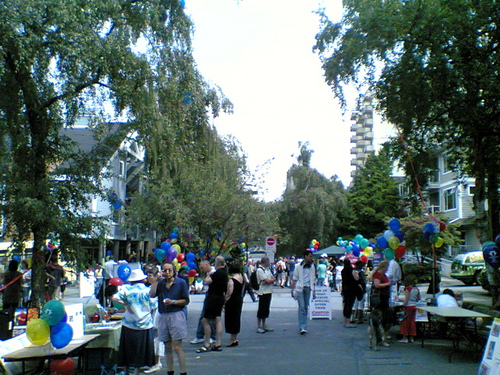
A snapshot from the 10th block party, 5 years ago. This year's party promises to larger in scale and even more memorable in significance.
Concerning our division of labour, my partner, Jenn will focus on Aboriginal settlers and the untold stories /counter histories of the neighbourhood through archival research and interviews with several experts on the matter. I will be focusing on interviewing prominent seniors, staff and model volunteers from Gordon House. My part will deal with the subjective and unofficial histories derived from the memories and experiences of seniors and model volunteers that define and shape the imagined community of the West End. The key here is a creative juxtaposition of the past and present with an objective to tell a story of the neighbourhood and house’s history and cultural heritage. Concurrently, both of us are searching for photographs of the house and the West End. Our main challenge is finding a to develop a creative way to integrate the 3 themes together with imagery and to develop cohesive and inter-relatable research questions for the presentation in June and event in August.
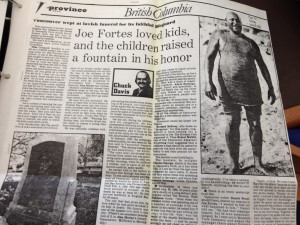
A trip down memory lane in the form of newspaper clippings....A written tribute to English Bay's very own, Joe Fortes who passed away in 1922 at age 55 (The Province, 1982). With the widespread racism in the early 1900s, he was the only black lifeguard allowed to work at the beaches of English Bay, due to his exceptional swimming abilities and good record of life saving (26 counts). He eventually won the hearts of many with his sincere devotion to his job and kindness to kids..He remains a key icon to the West End to this very day.
About my initial experiences of doing field research, admittedly it has been limited at best to searching the archives at the public libraries for photos and establishing liaisons with key personnel within Gordon House. With the interviews scheduled for this week, I am looking forward to finally getting my hands dirty. If there’s anything I can take away from these initial weeks of planning, would be that the preparation for fieldwork is expansive. “Much of fieldwork involves confirming unity – unity of themes and patterns that hang together in the data” (Sunstein and Chiseri-Strater, 2012, p. 194). Organized planning aides fieldwork by laying the basis for initiating research and locating trends and themes within the theoretical structures. Secondly, it also involves performing relevant historical research, determining how to make contacts with subjects and maintaining relationship with the subjects (Babbie and Benaquisto, 2002).
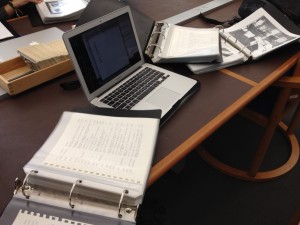
Scouring the archives at the Vancouver Public Library (Week 1 of the course, a tedious but interesting experience....Clicking on the image just sums up my thoughts to the process)
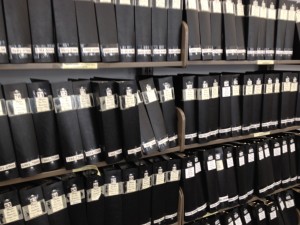
An endless sea of...Oops! I meant shelf of photos dating back to the 1900s (The Vancouver Public Library Archives)
Finally, with the responsibility of conducting interviews with seniors, staff and volunteers on my shoulders, I also am well aware that my own personal biases and opinions may inherently in some manner, influence my observation process, amidst working with an abundance of evidence from my field notes,interview transcripts and photographs. I would have to mindful of this aspect and maintain an inward and reflexive perspective when analyzing the data ( Sunstein and Chiseri-Strater, 2012). To sum it up, these are among the important considerations to remember as I take my neophyte steps towards becoming an ethnographer.
References
Babbie, E., & Benaquisto, L. (2010). Fundamentals of social research. T.O., ON, Canada: Nelson Education.
Sunstein., B., S.,& Chiseri-Strater, E. (2007). FieldWorking: Reading and Writing Research. Upper Saddle River, NJ: Prentice Hall.

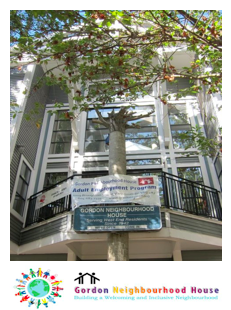
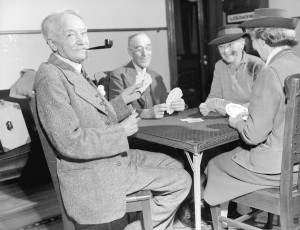
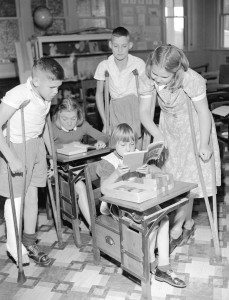
I was on the staff at Gordon House 1952-1954. I was in charge of the “Midgets” (6-9 year olds) and the teen age girls. I figure that I am the only staff person from that era who is still alive since I was the youngest one. I was 22 and was born January 1,1930. This was my first job after graduating from the University of Wisconsin with a BA degree in recreation. I was newly married and moved to Vancouver with my husband who was working for his PhD at UBC.
I recently visited Gordon House and found out about the 70 year celebration. I plan to attend!